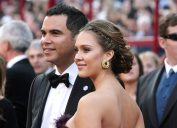The Olympics Is Now Banning This Beloved Tradition Because of COVID
You won't see this long-honored tradition during the Tokyo Olympics.
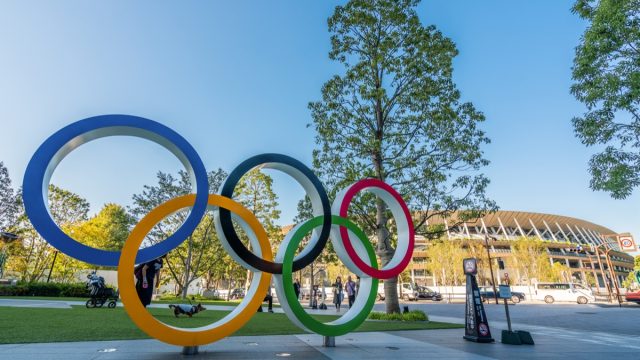
Almost every aspect of life has been upended by the COVID pandemic—and this summer's Olympics will be no different. After a year delay, the Tokyo Olympics 2020 (as they're still being called) are set to kick off on July 23, but it's not going to be business as usual due to the risks the virus poses. Now, officials have announced that there is one time-honored tradition that you will not see at the upcoming Games because of COVID. To see what there's now a ban on at this year's Olympics, read on.
RELATED: Kerri Strug's Heroic Vault Was 25 Years Ago. See Her Now.
Medals will not be placed around Olympians' necks.
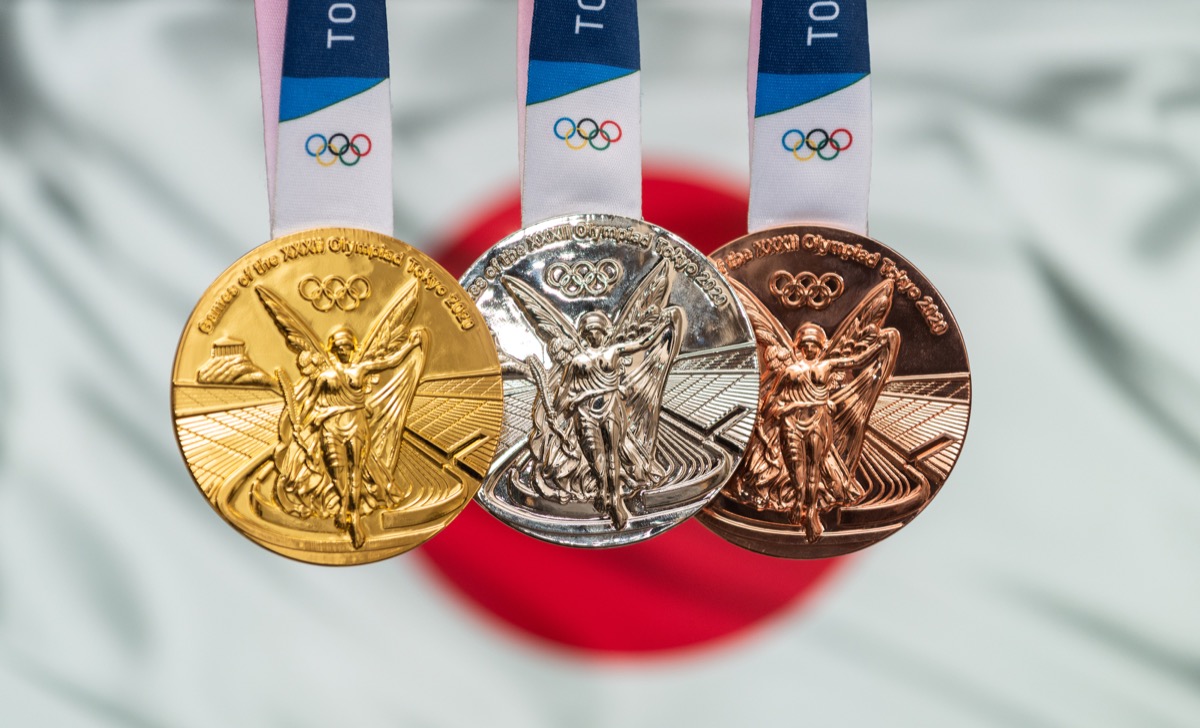
Traditionally, gold, silver, and bronze medals are presented to the Olympians, then placed around their necks by an International Olympic Committee (IOC) member or a notable person within their sport. However, this year, the Olympics are forbidding this long-honored tradition. According to Newsweek, on July 14, IOC President Thomas Bach said on a conference call, "The medals will not be given around the neck." Instead, "they will be presented to the athlete on a tray, and then the athlete will take the medal him or herself."
Newsweek reports that Bach said those presenting the medals will be wearing gloves when offering the awards to the Olympians to ensure that the medal is not contaminated via touch. Additionally, Bach said handshakes and hugs will not be allowed while giving out the medals.
RELATED: An Olympian Just Slammed Nike for "Disrespectful" Ad Campaign.
There will be other strict rules for athletes at the Olympics as well.
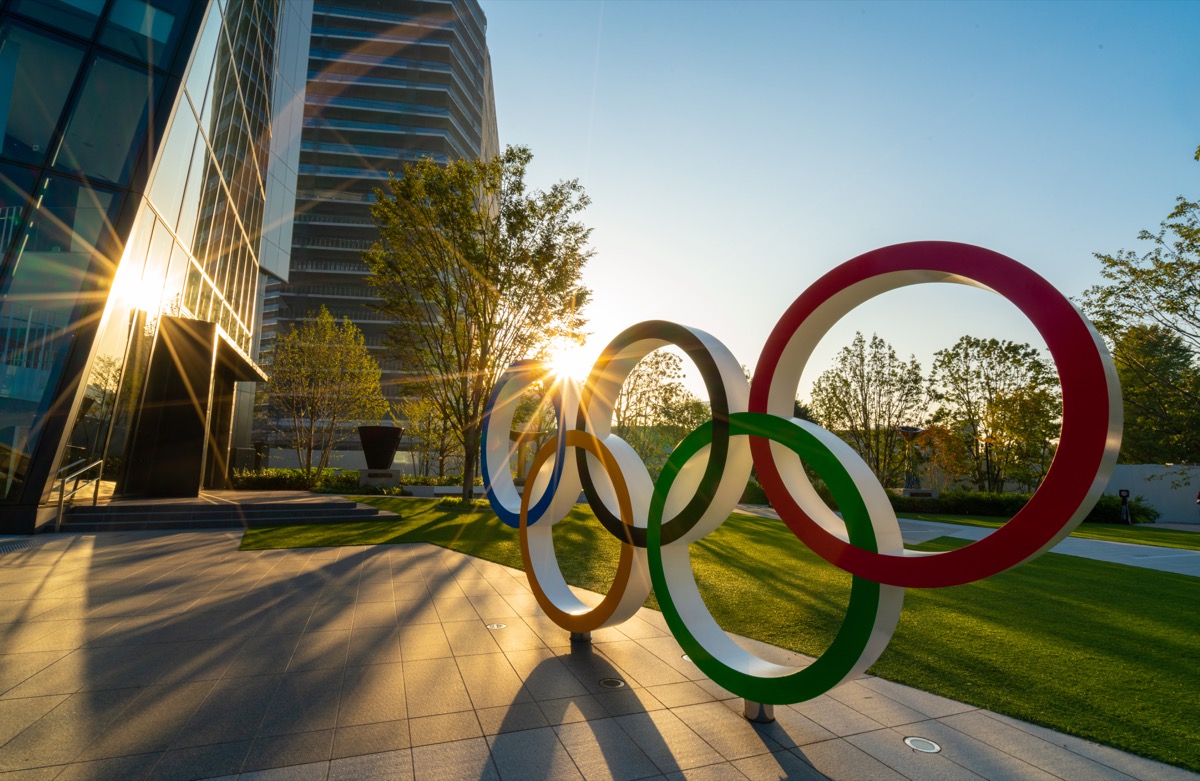
In addition to not placing the medals around the winner's necks and banning physical contact during the medal ceremony, there will be other restrictions in place.
According to The Playbook, athletes can only use specific Olympic vehicles and are only able to see people on the list they provide of regular contacts. Players can only leave their accommodations to go to a select list of approved locations. Athletes must also wear a mask and maintain at least six feet of distance from each other.
Many of the Olympians are vaccinated, but it's not mandated or possible for everyone.

On July 14, Bach said in a statement that "85 percent of the athletes and officials who will live in the Olympic Village, and almost 100 percent of the IOC Members and IOC staff, are either vaccinated or immune." Athletes will also be tested at unspecified intervals after they arrive in Tokyo.
While some Olympians have chosen not to get vaccinated for religious or other personal reasons, others cannot be vaccinated because of their age. "Although several countries have vaccinated their athletes, adolescents between 15 and 17 years of age cannot be vaccinated in most countries, and children younger than 15 can be vaccinated in even fewer countries," a group of concerned U.S. doctors wrote in the New England Journal of Medicine on July 1. "As a result, few teenage athletes, including gymnasts, swimmers, and divers as young as 12, will be vaccinated."
RELATED: For more up-to-date information, sign up for our daily newsletter.
The Olympics has also made other major changes for fans due to COVID.
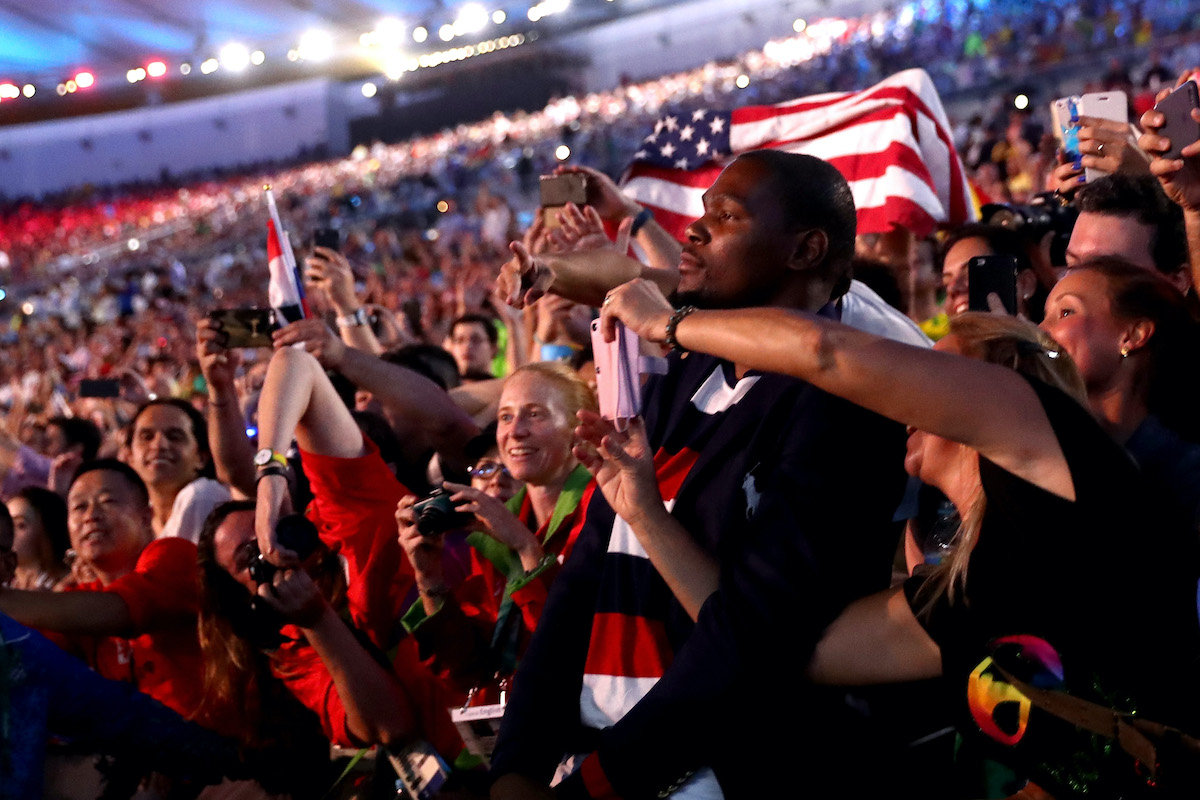
With the Olympics only a couple of weeks away, Tokyo declared a state of emergency on Jul. 8 as COVID cases have spiked in the city. The state of emergency, which runs through Aug. 22, forced the Tokyo Metropolitan Government, the government of Japan, the IOC, and International Paralympic Committee to announce that the Olympics would have to ban spectators from most events at the Games, USA Today reported.
There has been a lot of controversy surrounding the Olympics and whether or not it was safe to go on as planned. The Olympics had previously announced that only domestic spectators would be allowed at the Games, but the situation changed as cases surged.
"The priority will be to determine safe and secure Games," Tokyo 2020 president Seiko Hashimoto said at a news conference when the spectator ban was announced, according to USA Today. "We wanted a full stadium so community people could get involved in welcoming the athletes so we could have a full presentation of the power of sports. However, now faced with COVID-19 we have no other choice but to hold the Games in a limited way."
RELATED: The Olympics Is Under Fire for Banning This at the Games This Year.



